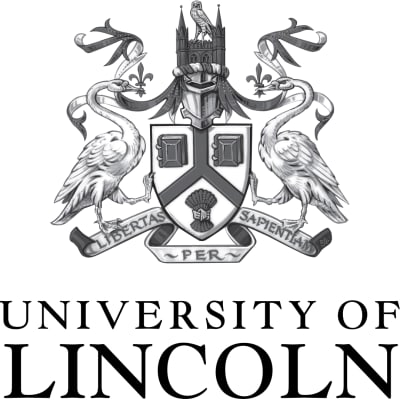
BSc (Hons) Physics with Philosophy
University of Lincoln

Key Information
Campus location
Lincoln, United Kingdom
Languages
English
Study format
On-Campus
Duration
3 - 4 years
Pace
Full time
Tuition fees
Request info
Application deadline
Request info
Earliest start date
Request info
Discover Lincoln Wherever You Are in the World
Our webinars, subject masterclasses, question and answer sessions, and student panel talks are a great way to discover what it is like to live and study at the University of Lincoln.
Introduction
This joint degree programme introduces fundamental and applied physics while developing a philosophical understanding of the world we live in and the place we occupy within it.
Combining physics with philosophy offers students the chance to study, reflect on, and understand scientific material. Students can apply philosophical theory and ask the fundamental questions designed to investigate, enhance, and expand knowledge.
Students have the opportunity to learn from and work alongside, our team of academics who can support and encourage them to apply imagination, creativity, and rigour to the solution of real-world problems. Individual and group projects during the course are designed to develop transferable skills.
"This information was correct at the time of publishing (July 2023)"
Gallery
Admissions
Curriculum
How You Study
The course is designed to provide a thorough grounding in experimental and theoretical physics, alongside the study of philosophy. It is structured to enable students to engage with the core physics curriculum and to examine it from different perspectives more deeply.
Students can develop critical thinking and reflective skills alongside numerical and analytical methods of physics and mathematics, and practical scientific and research techniques. The course also aims to develop a wide range of transferable skills, including logical reasoning, critical analysis, communication, and teamwork.
In the first year, modules include Geometrical Optics, Waves and Mechanics; Calculus; and Introduction to Philosophical Logic. Progressing into the second year students can study modules including Differential Equations, Condensed Matter Physics, and Philosophy of Science. The third year offers modules such as Physics of the Universe, Quantum Mechanics, and Contemporary Problems in Philosophy, in addition to a range of optional modules including Methods of Mathematical Physics, Newton's Revolution, and Fluid Dynamics.
The course is taught via lectures, problem-solving classes, computer-based classes and seminars.
First Year
- Calculus (Core)
- Computer Algebra and Technical Computing (Core)
- Electricity, Magnetism, Thermal and Quantum Physics (Core)
- Geometrical Optics, Waves and Mechanics (Core)
- Introduction to Moral Philosophy (Core)
- Introduction to Philosophical Logic (Core)
- Laboratory 1 (Core)
- Linear Algebra (Core)
Second Year
- Condensed Matter Physics (Core)
- Differential Equations (Core)
- Electrodynamics (Core)
- Existentialism and Phenomenology (Core)
- Group Project (Core)
- Industrial and Econo-Physics (Core)
- Lagrangian and Hamiltonian Mechanics (Core)
- Philosophy of Science (Core)
Third Year
- Contemporary Problems in Philosophy (Core)
- Physics of the Universe (Core)
- Physics Project (Core)
- Quantum Mechanics (Core)
- Statistical Mechanics (Core)
- Fluid Dynamics (Option)†
- Methods of Mathematical Physics (Option)†
- Newton's Revolution (Option)†
- Physics Pedagogy (Option)†
† Some courses may offer optional modules. The availability of optional modules may vary from year to year and will be subject to minimum student numbers being achieved. This means that the availability of specific optional modules cannot be guaranteed. Optional module selection may also be affected by staff availability.
How You Are Assessed
The course is assessed through a variety of methods including coursework, examinations, written reports, and oral presentations.
Accreditation
This programme is accredited by the Institute of Physics (IOP). Holders of accredited degrees are eligible for IOP membership and can follow a route to professional registration as a RSci, CPhys, and/or CSci.
Program Outcome
How You Study
The course is designed to provide a thorough grounding in experimental and theoretical physics, alongside the study of philosophy. It is structured to enable students to engage with the core physics curriculum and to examine it from different perspectives more deeply.
Students can develop critical thinking and reflective skills alongside numerical and analytical methods of physics and mathematics, and practical scientific and research techniques. The course also aims to develop a wide range of transferable skills, including logical reasoning, critical analysis, communication, and teamwork.
In the first year modules include Geometrical Optics, Waves and Mechanics; Calculus; and Introduction to Philosophical Logic. Progressing into the second year students can study modules including Differential Equations, Condensed Matter Physics, and Philosophy of Science. The third year offers modules such as Physics of the Universe, Quantum Mechanics, and Contemporary Problems in Philosophy, in addition to a range of optional modules including Methods of Mathematical Physics, Newton's Revolution, and Fluid Dynamics.
The course is taught via lectures, problem solving classes, computer based classes and seminars.
Scholarships and Funding
For eligible undergraduate students going to university for the first time, scholarships and bursaries are available to help cover costs. The University of Lincoln offers a variety of merit-based and subject-specific bursaries and scholarships.
Several scholarship options are available. Please check the university website for more information.
Program Tuition Fee
Career Opportunities
Graduates may pursue careers in the fields of science, education, finance, business, consultancy, and research and development. This degree promotes skills in creative, critical, and independent thinking. It may prove beneficial in careers requiring flexibility and the ability to formulate a persuasive case. This could include careers in politics and the media, as well as the civil service, among other areas. Some graduates may choose to continue their studies at postgraduate level.